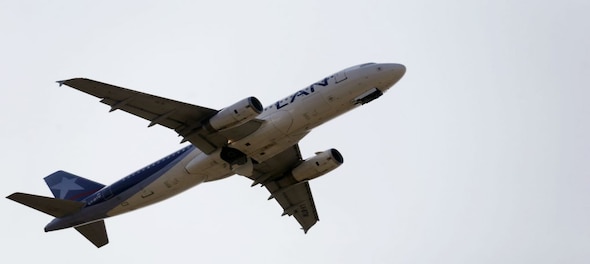
In 2013 when the maverick Samoa Air experimented
with the weight of passengers as the criterion for fare fixation, there was an angry outburst against the move with human right activists berating the move as dehumanising and degrading.
But the airlines’ counter was planes are run by weight and not by seat. Indeed, an aircraft can lift and fly only the technically feasible weight which is why there are restrictions on baggage weight and dimensions. The standard international practice of allowing two 23kg bags per economy passenger and two 32kg bags per business class passenger does support the Samoa stand that weight ought to be an important criterion in fare fixation.
An example is in order. Novak Djokovic is a slim but strong tennis player but a sumo fighter necessarily has to be gigantic. Should both be charged the same fare in the same flight from the same origin to the same destination in the same class? The rational and dispassionate answer should be in the negative. Health freaks and the medical world in general should be supportive of this unconventional worldview of air fare fixation that challenges the status quo.
Wannabe fliers would work towards weight reduction and shed excess flab though there are many imponderables like if the weight should be the one at the time of booking when the fare is paid or at the time of boarding? This is not such a terribly irreconcilable issue as refunds or excess fare may be worked out at the time of boarding according as a flier has shed or gained weight in the interregnum between booking and boarding. In other words, the latest weight should be the determinant.
The United Airlines policy regarding overweight passengers aboard one of its flights are strict. Passengers who are unable to secure their seatbelt, who are unable to lower the armrests, and who are encroaching too much on the personal space of the person sitting next to them will be required to purchase a secondary seat . This is a subtle way of asking passengers to mind their weight in their own interest vis-à-vis the Samoa in-your-face fare policy that is more conducive to certainty and less chaotic. But the United Airlines policy does cause resentment among overweight fliers in the last minutes before takeoff. It is too iffy and uncertain as against the Samoa formula of settling the obesity issue at the boarding pass issuance stage itself.
Now comes nitty-gritty. Isn’t a flyer already paying more towards his weight or otherwise in a business or first class by hogging greater aircraft space? In other words, should weight figure only in the economy fare calculus where fliers literally rub shoulders with their seat-mates? As it is, the norm is price fixation revolves around the distance (telescopic fare as in the Indian Railways), comfort i.e., economy or business class and whether you were an early bird or last-minute booker. Weight should figure explicitly and prominently in the calculus was the weight of the argument of Samoa.
The human rights argument is airlines cannot equate humans with cargo or baggage. The truth however is airlines aren’t running charity but business. At any rate, air safety experts are seen on the side of the weight school. They say that weighment of passengers is as necessary as weighment of their baggage because assuming a standard weight of all passengers is too dangerous and presumptuous ultimately impacting on the safety of the aircraft midair and while taking off.
While the weight school’s argument is compulsive, convincing and rational, it has the potential to delay flights due to frayed tempers at the concourse. Irate passengers may complain about the quality of the weighing scales if they have to shell out more. In any case airlines would need to advance the reporting time now that weighment of passengers is also necessary.
Railways and road transport can take the excess passenger weight in their stride but not waterways and airways. An overloaded boat can capsize. For airlines, the discussion has a special relevance because trim and slim fliers should not be made to cross-subsidize the bloated ones. Airline fares are a lot more expensive than other modes of transport. Hence it has come in for special discussion.
—S Murlidharan is a CA by qualification, and writes on economic issues, fiscal and commercial laws. The views expressed in the article are his own.
Read his previous articles here
(Edited by : CH Unnikrishnan)
Check out our in-depth Market Coverage, Business News & get real-time Stock Market Updates on CNBC-TV18. Also, Watch our channels CNBC-TV18, CNBC Awaaz and CNBC Bajar Live on-the-go!


BJP is planning to ban RSS, says Shiv Sena (UBT) chief Uddhav Thackeray
May 18, 2024 8:01 PM
Punjab Lok Sabha elections: Complete list of Congress candidates
May 18, 2024 4:08 PM
Punjab Lok Sabha elections: Check full list of AAP candidates and constituencies
May 18, 2024 12:59 PM
PM Modi, Rahul Gandhi election rallies in Delhi today: Here are the routes to avoid
May 18, 2024 11:28 AM

